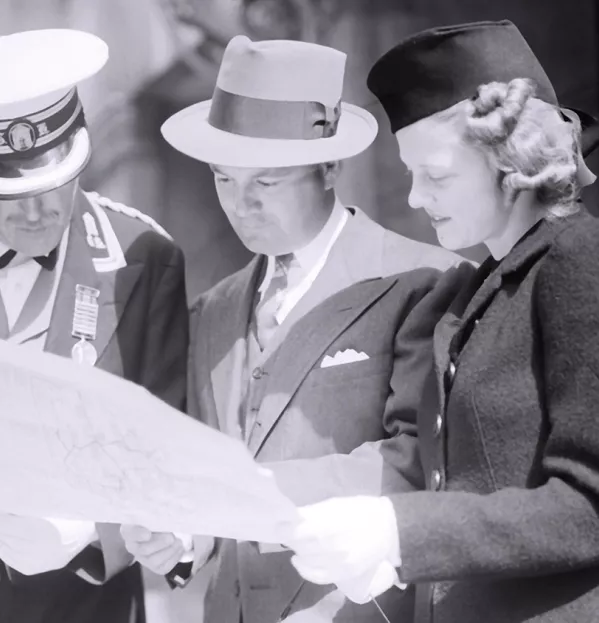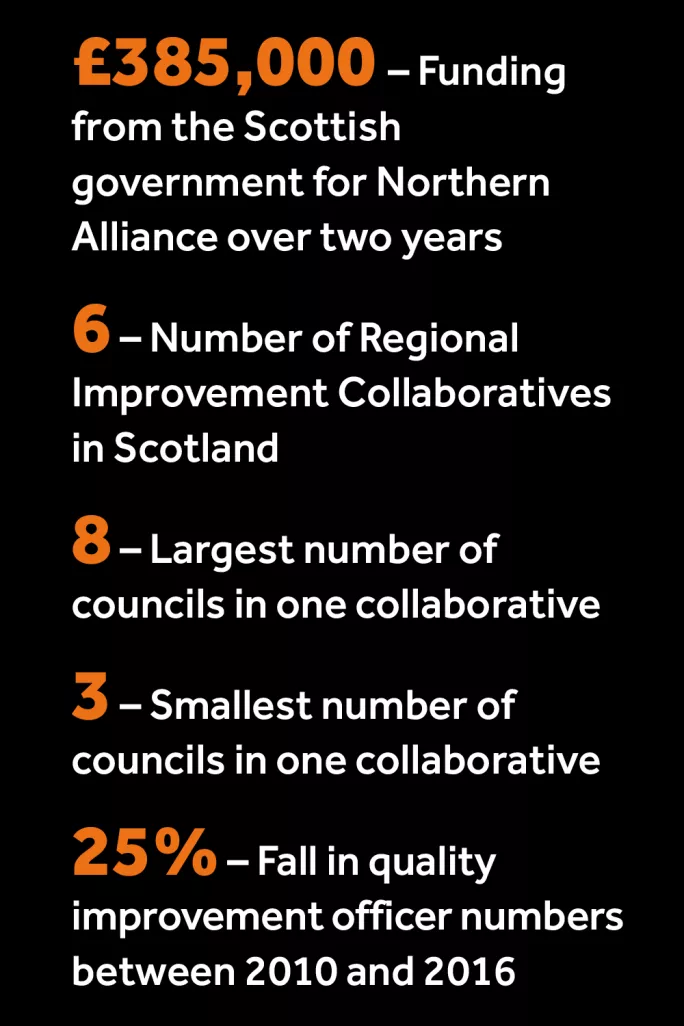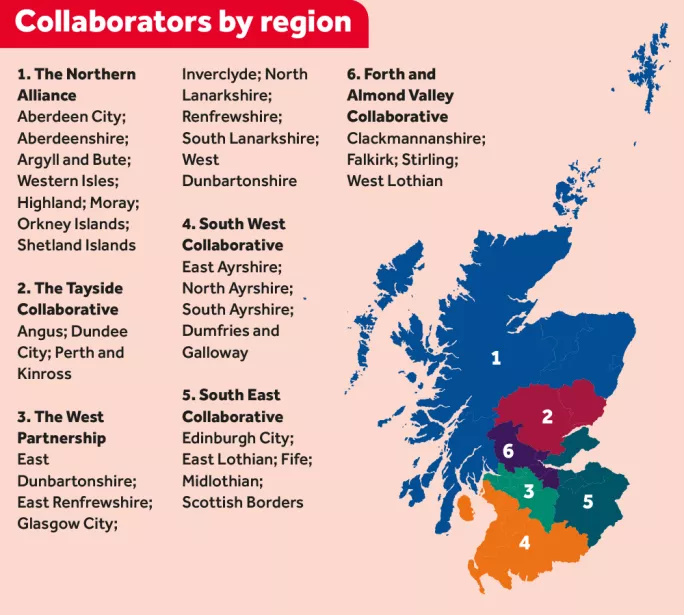New regions, new direction

The head of Scotland’s largest teaching union has welcomed the “sensible compromise” by councils and the Scottish government, which will protect the role of local authorities in the running of schools as controversial new education regions are established.
However, he has called for additional funding to be made available for the regions - which will group together local authorities in a bid by the government to “provide an enhanced educational improvement service” for schools and teachers - otherwise their creation will be “meaningless”.
Last week it was announced that six new education regions, or Regional Improvement Collaboratives, would be established, each containing three to eight councils (see box).
The deal, between the Scottish government and local authorities body Cosla, was made possible thanks to what Labour described as “a very welcome, albeit embarrassing, climbdown” by education secretary John Swinney.
The government had said it would appoint regional directors to lead the improvement collaboratives and they would report to schools inspectorate Education Scotland, sparking fears in Cosla that there would be “no meaningful local democratic accountability for education in Scotland”.
Now it has been agreed the new directors will be appointed by councils and will be accountable to councils, but also report to Education Scotland.
Education secretary John Swinney told Parliament this week that the new regional collaboratives would be up and running this year. It is also expected that the new regional directors - to be called “regional coordinators” or “lead officers” - will be in place in each region by the end of this month, with detailed improvement plans in place by January 2018.
‘Where is the resource?’
The EIS’s Larry Flanagan has warned new bodies will need additional funding. He said: “Where is the resource so they can facilitate pedagogical support and professional development for teachers? From what I have seen, that does not appear to have been addressed.”
Cosla, meanwhile, told Tes Scotland that the Northern Alliance - the collaboration between northern and island local authorities often cited as an example of good practice by the government - had received additional funding and it would like to see this approach replicated. A spokesman said the body was looking “forward to discussing this with [Mr Swinney] at our next political meeting.”
In June the Scottish government announced the Northern Alliance would receive £385,000 over two years “to pool and strengthen resources that support learning and teaching”. Around half of the money was earmarked for literacy and numeracy attainment projects.
That same month, as part of its report on the landmark Education Governance Review, the government announced its intention to create the new education regions to ensure teachers and schools are supported irrespective of which council they are based in.
It said that in a number of smaller local authorities, there was “no longer the critical mass to deliver the improvement support that schools need”.

Official figures show the number of quality improvement officers fell by 25 per cent between 2010 and last year in Scotland, from 472 to 352.
The government has also said it wants to ensure - via the collaboratives - that best practice in education is shared systematically.
However, the consultation on the review of how schools should be run, which closed in January, showed there was little appetite for the move.
“There was strong opposition to the uniform establishment of educational regions, particularly from local authorities, but also from schools, agencies, parent councils and individuals,” said the consultation analysis published in June. It added: “The primary criticism revolved around an increase in unnecessary bureaucracy and a loss of local accountability, as well as a general weakening in democratic representation.”
Labour education spokesman Iain Gray described the deal between Cosla and the Scottish government as “a very welcome, albeit embarrassing, climbdown” but warned the SNP was still threatening to set school budgets centrally. He urged them to also “drop that unwanted idea”
Mr Swinney said: “Improving the education and life chances of our children is my number one mission. I welcome that local government shares this vision and commitment.
“Improvement collaboratives are key to realising this ambition and a crucial part of our education reforms. I look forward to national and local government working together at pace - with support and expertise from Education Scotland - on this important regional initiative. It is the right approach to support our schools in closing the attainment gap and raising the bar for all.”
The government says that the regional collaboratives will rely on “pooling and sharing local government resource and devolving Education Scotland staff time and expertise”, with any extra resources “considered as part of the normal budgetary processes”.

You need a Tes subscription to read this article
Subscribe now to read this article and get other subscriber-only content:
- Unlimited access to all Tes magazine content
- Exclusive subscriber-only stories
- Award-winning email newsletters
Already a subscriber? Log in
You need a subscription to read this article
Subscribe now to read this article and get other subscriber-only content, including:
- Unlimited access to all Tes magazine content
- Exclusive subscriber-only stories
- Award-winning email newsletters